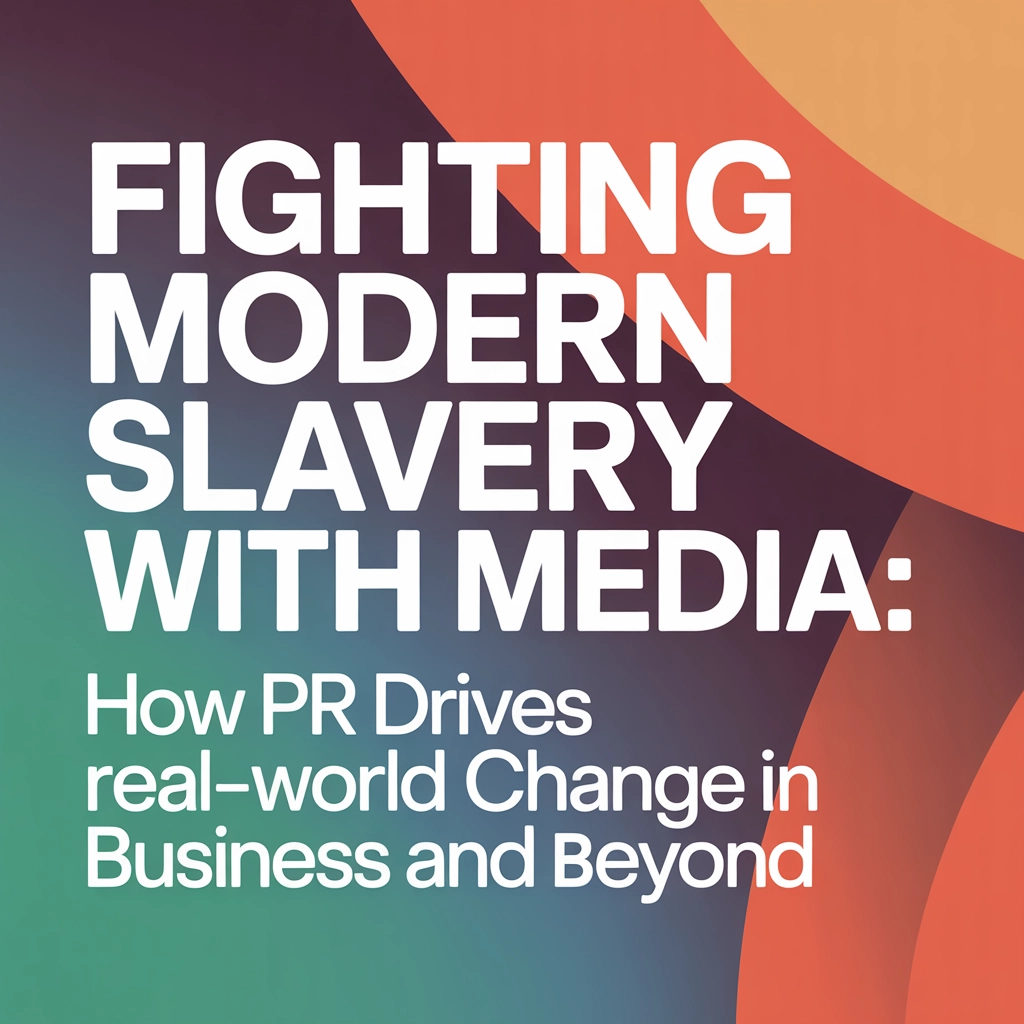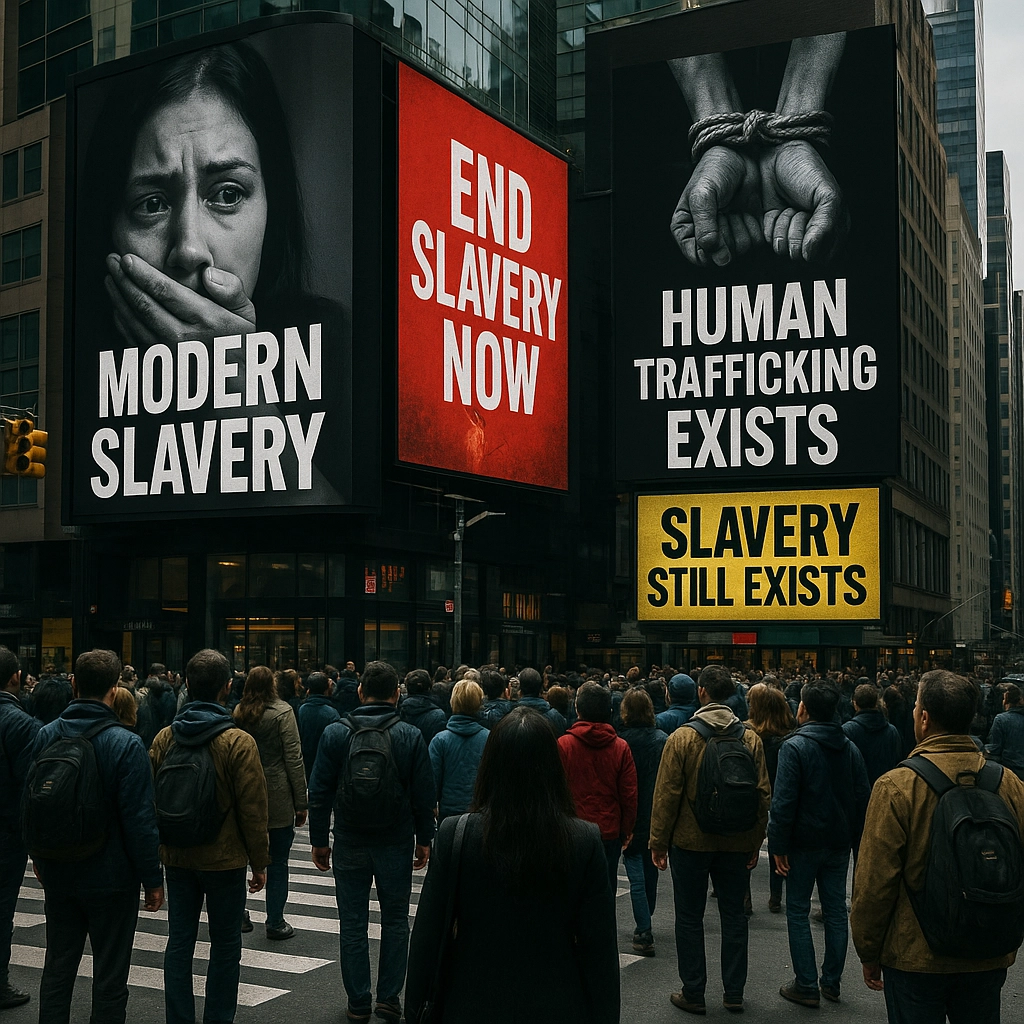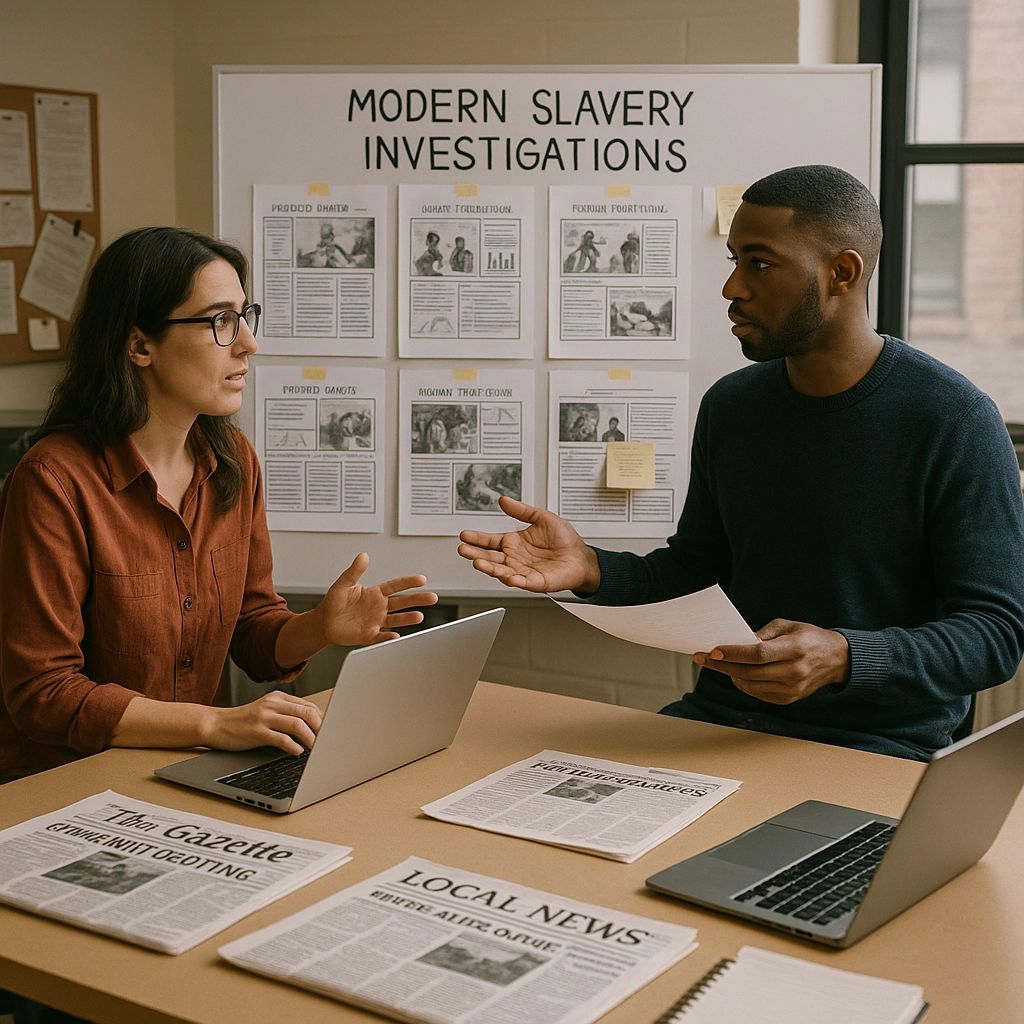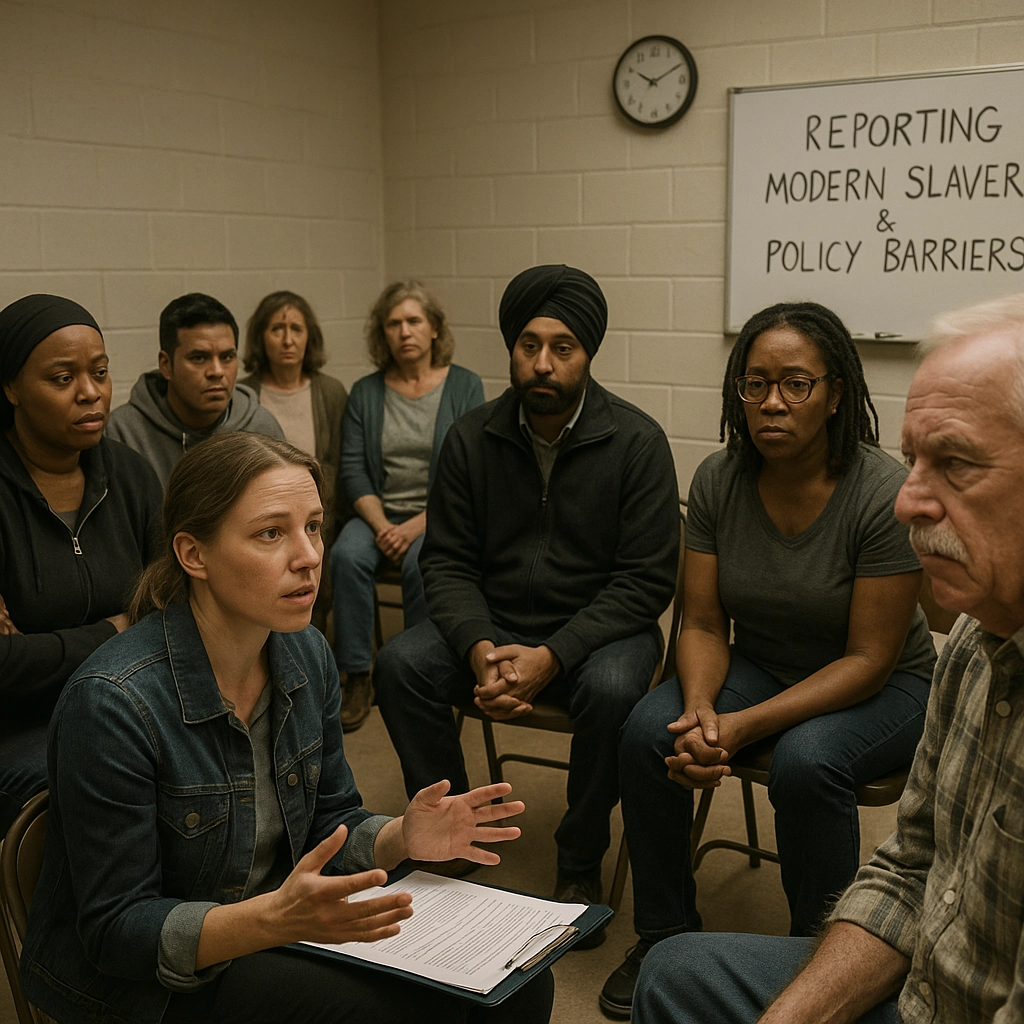
Media campaigns and public relations strategies have emerged as powerful tools in combating modern slavery, creating measurable changes in public awareness, corporate behavior, and policy implementation. The strategic use of communications has proven essential in transforming this hidden crime from a largely unknown issue into a matter of public concern and business accountability.
Government-Led Awareness Campaigns
Public awareness campaigns and the work of think tanks such as the Centre for Social Justice have demonstrated remarkable effectiveness in educating populations about modern slavery. Take, for example, the UK Home Office's nationally coordinated campaign, which reached an astounding 93% of UK adults through repeated exposure across television, digital, and print platforms. Television ads delivered a rapid awareness boost, while targeted digital and print outreach dug deeper, fostering understanding and empathy toward victims.
The results? Awareness that modern slavery exists in the UK jumped from 50% to 61% in the general population. Those who could recall campaign materials demonstrated even higher awareness rates—70%, to be exact. The campaign also introduced the term “modern slavery” to thousands of individuals for the first time, making it easier for citizens to identify and discuss the issue.

Success stories like this are no accident. Governments are increasingly using professional PR techniques, big data, and audience segmentation to target messaging and measure impact. These efforts have proven essential in breaking through the noise, challenging misconceptions (such as the myth that slavery is only a “foreign” problem), and providing the public with clear, practical ways to get involved.
Corporate Communications and Business Transformation
Years ago, corporate conversations about modern slavery might have been held behind closed doors—if they happened at all. Today, mounting pressure from media coverage and PR campaigns has fundamentally altered how businesses approach slavery risk in their operations and supply chains.
Effective anti-slavery communication delivers more than a moral victory or tick-box compliance exercise. Businesses that engage transparently with the issue unlock benefits spanning risk management, brand reputation, and investor relations.
From a risk management perspective, mapping supply chains for forced labor isn’t just ethically sound—it fortifies food safety and reliability in sectors like agriculture, textile, and manufacturing. For investors, a company’s approach to modern slavery is a window into its values and operational resilience. Many leading investors now actively screen for trustworthy anti-slavery reporting before committing funds or partnerships.

On the consumer front, clear and credible messaging on modern slavery builds customer loyalty. Campaigns like the End Uyghur Forced Labour movement have forced global brands to defend and refine their sourcing practices in response to media scrutiny and grassroots pressure. Success is no longer defined solely by the bottom line—it’s about the message you send and the change you drive.
Local Media’s Amplified Impact
While national campaigns shape big-picture attitudes, local media harnesses community trust to spark real grassroots change. For example, modern slavery coverage in East Midlands local press increased sixfold between 2016 and 2017—a surge directly tied to more court cases and public engagement at the community level.
Local journalists often provide nuanced, context-sensitive reporting that brings complex stories to life. Coverage of victim testimonies, local awareness events, or even the details behind “spot the signs” initiatives foster a deeper understanding than the fleeting exposure many national outlets deliver.
 Communities benefit when local newspapers highlight the support services available or explore the moral nuances around reporting suspected exploitation. This localised storytelling helps empower bystanders, neighbours, and workers to take action and support victims more effectively... And as an aside underscores the importance of having well funded, independent local newspapers, but these are rapidly becoming something of a rarity in the UK.
Communities benefit when local newspapers highlight the support services available or explore the moral nuances around reporting suspected exploitation. This localised storytelling helps empower bystanders, neighbours, and workers to take action and support victims more effectively... And as an aside underscores the importance of having well funded, independent local newspapers, but these are rapidly becoming something of a rarity in the UK.
Consumer Mobilisation Through Strategic Communications
It’s easy to underestimate the role of the consumer in dismantling modern slavery. Most people don’t walk into a shop intending to support exploitation, but supply chains can be opaque, and price and convenience still dominate most purchasing decisions. That’s where thoughtfully crafted PR and media campaigns come in—educating consumers about hidden risks, spotlighting brands taking action, and empowering collective decision-making.
Strategic communications go beyond shocking statistics, instead connecting the dots between the choices people make every day and their impact on global labor practices. When campaigns resonate—like the pushback against forced Uyghur labor in the apparel sector—companies can feel the pressure to reform quickly and visibly.
Still, not every campaign moves the needle equally. For instance, despite significant publicity and public outrage, changes after the Boohoo scandal (concerning labor abuses) were slow and limited. This suggests that consumer voice can be fragmented or outpaced by the forces of convenience and price unless campaigns unify messaging and action.
Challenges and Unintended Consequences
For all the benefits of awareness-building, media campaigns also face real-world constraints. Not everyone who wants to “do the right thing” feels empowered to act, especially in environments where reporting suspicions might inadvertently harm potential victims. Research shows that some members of the public, even when sympathetic, hesitate to call the authorities over fears about immigration consequences or intervention mishandling.
Government policies can inadvertently undermine well-intentioned communications. For example, “hostile environment” immigration rules can make people afraid to step forward, believing their reports could lead to victim deportation rather than rescue or support.

To be effective, campaigners need holistic strategies—ones that both raise awareness and acknowledge the system-level barriers to progress. PR has the unique ability to humanize stories, drive empathy, and target messages, but only when complemented by policy that protects and supports victims will media efforts translate into lasting change.
Measuring Real-World Impact
So, does all this communication actually drive progress? The evidence strongly suggests yes—when media and PR align efforts, measurable outcomes follow.
- Government campaigns produce concrete increases in public understanding, vigilance, and empathy.
- Corporate communications enhance transparency and accountability, strengthening business resilience, attracting investors, and encouraging ethical consumption.
- Local media plays a vital watchdog and educator role, directly supporting increased legal action and community mobilisation.
The most successful strategies are multi-layered: television and high-profile news for broad awareness, digital and print for in-depth education, corporate reporting for transparency, and local media for rooting change in everyday settings.
Perhaps the greatest lesson is this: fighting modern slavery is about more than reporting numbers or exposing wrongdoers. It’s about developing an interconnected network of informed advocates—from government, business, media, and the community—who push each other forward through transparent, emotionally resonant, and actionable communications.
Progress is possible, but neither the challenge nor the solution can be isolated. As media and PR campaigns continue to evolve, their role as both spotlight and guide in the fight against modern slavery is set only to grow.
Looking to supercharge your organisation’s impact? At Team Britannia PR, we help businesses and advocates harness the power of strategic communications to inspire change, build reputation, and make meaningful contributions to society. Get in touch to see how we can help.

